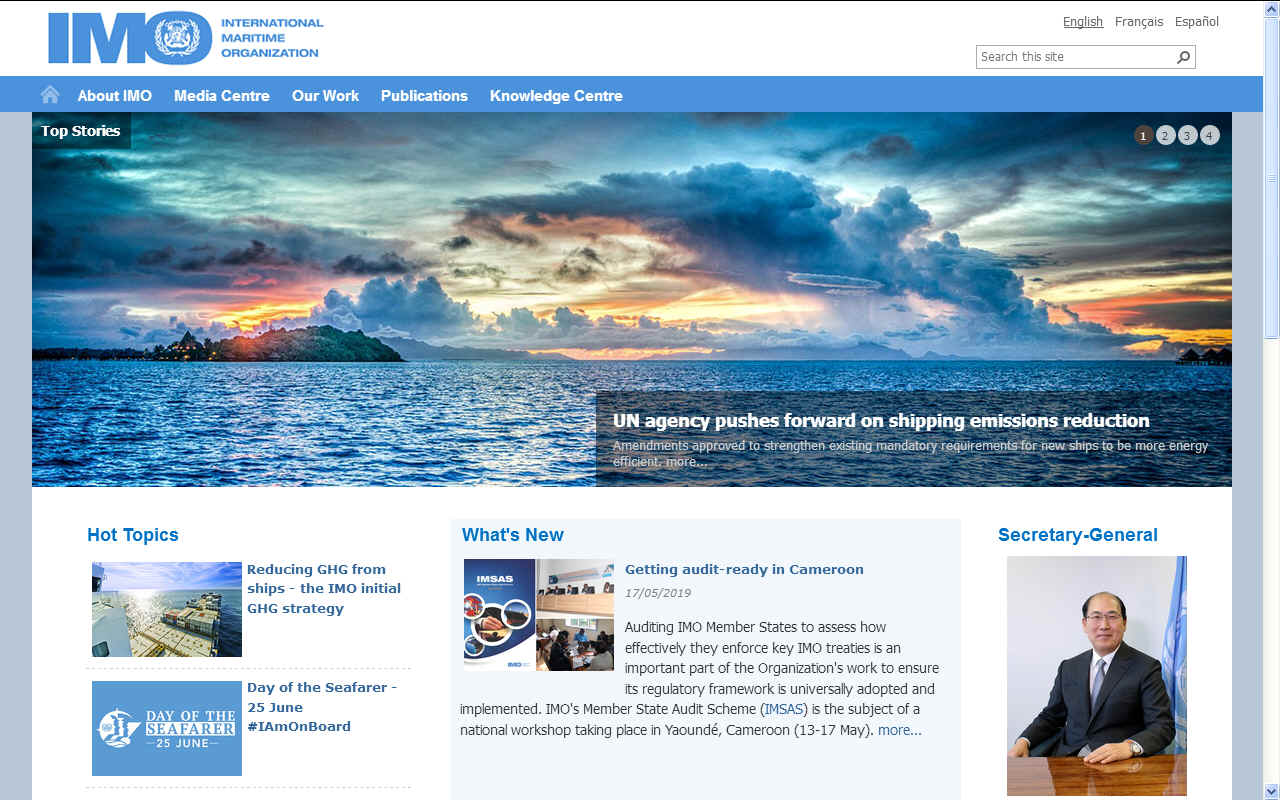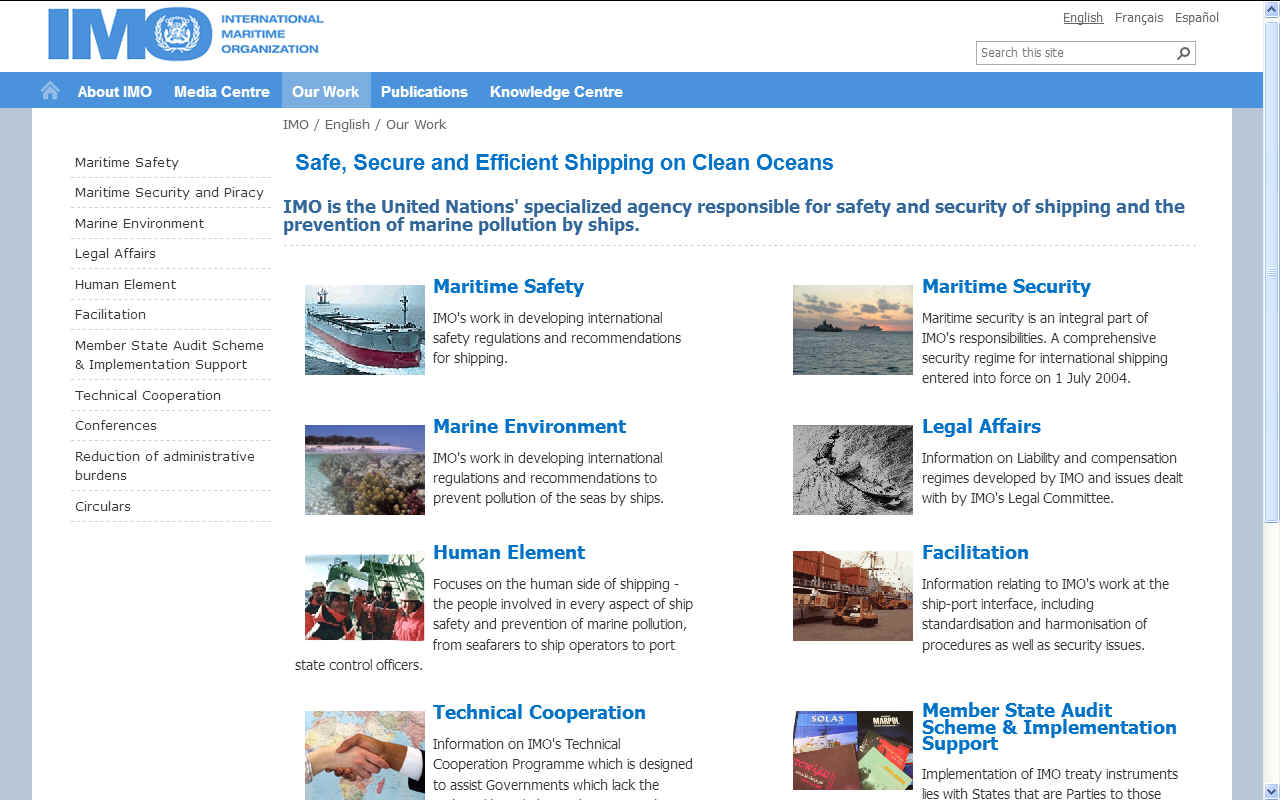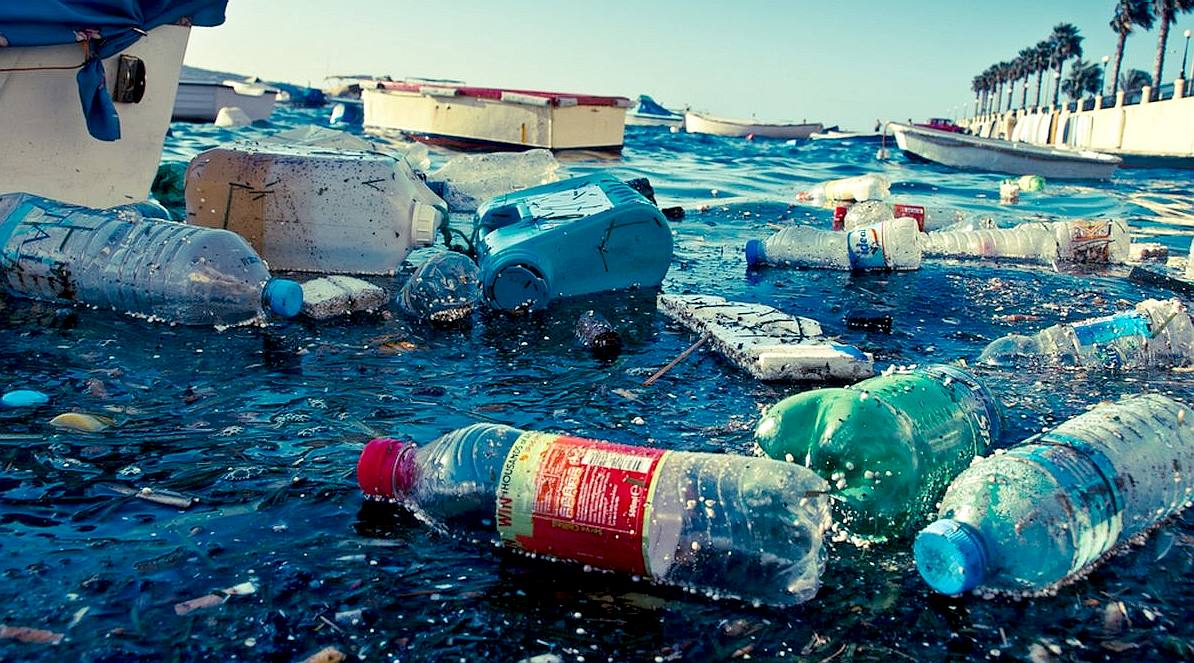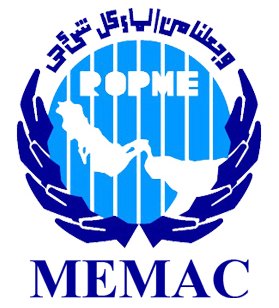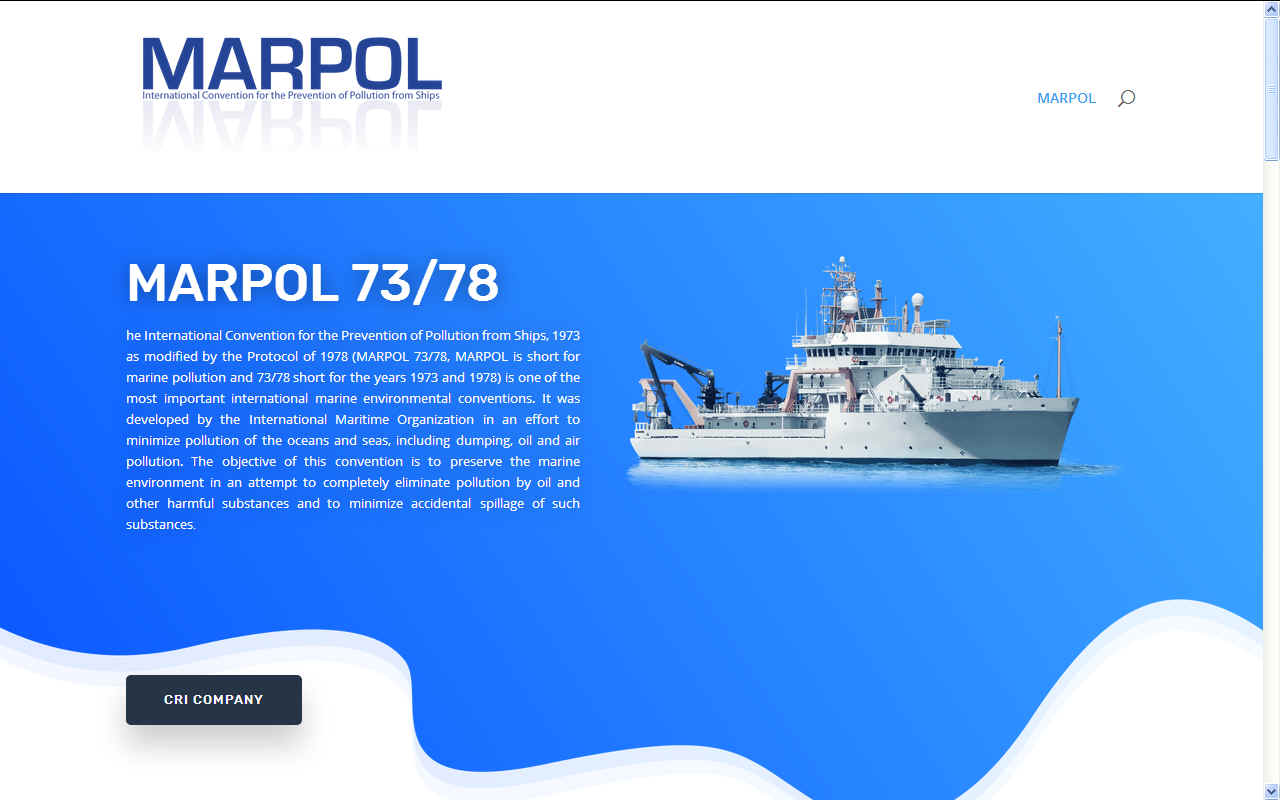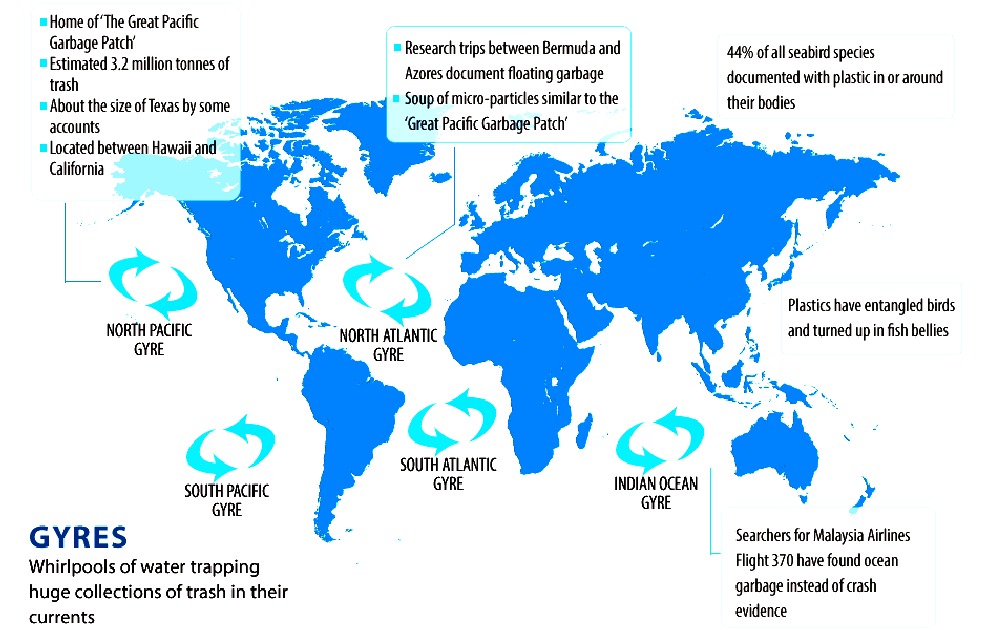|
MARPOL - MARINE POLLUTION CONVENTION
Please use our A-Z INDEX to navigate this site, where page links may lead to other sites
OCEAN HEALTH - The IMO has been working to limit shipping emissions and dumping at sea for many years, but is only now waking up to the plastic threat, like so many others. But are they working hard enough?
While all this plastic has been accumulating in our oceans and seas, and the water temperature and levels are rising, with acidification in the mix, what has the United Nation's IMO been doing about it?
If
they had been on top of it, we would not be facing a potential
food crisis at the moment.
IMO Senior Management Committee (Left to right) - Mr. Sung-Jin Kim, Head, Internal Oversight and Ethics Office; Mr. Hiroyuki Yamada, Director, Marine Environment Division; Mr. Lawrence Barchue, Assistant Secretary-General/Director, Department for Member State Audit and Implementation Support; Mrs. Linda Ryan, Director, Administrative Division; Mr. Kitack Lim, Secretary-General of the International Maritime Organization; Ms. Heike Deggim, Director, Maritime Safety Division; Mr. Arsenio Dominguez, Chief of Staff; Ms. Ariane Gireud, Acting Director, Conference Division; Mr. Frederick Kenney, Director, Legal Affairs and External Relations Division and Mr. Juvenal Shiundu, Acting Director, Technical Cooperation Division.
MARPOL
The International Convention for the Prevention of Pollution from Ships, 1973 as modified by the Protocol of 1978 (MARPOL 73/78, MARPOL is short for maritime pollution and 73/78 short for the years 1973 and 1978) is one of the most important international marine environmental conventions. It was developed by the International Maritime Organization in an effort to minimize pollution of the oceans and seas, including dumping, oil and air pollution. The objective of this convention is to preserve the marine environment in an attempt to completely eliminate pollution by oil and other harmful substances and to minimize accidental spillage of such substances.
ABOUT
THE IMO
Its role is to create a level playing-field so that ship operators cannot address their financial issues by simply cutting corners and compromising on safety, security and environmental performance. This approach also encourages innovation and efficiency.
Shipping is a truly international industry, and it can only operate effectively if the regulations and standards are themselves agreed, adopted and implemented on an international basis. And IMO is the forum at which this process takes place.
TRANSPORT
- IMO measures cover all aspects of international shipping – including ship design, construction, equipment, manning, operation and disposal – to ensure that this vital sector for remains safe, environmentally sound, energy efficient and secure.
The International Convention for the Prevention of Pollution from Ships, 1973 as modified by the Protocol of 1978 (MARPOL 73/78, MARPOL is short for marine pollution and 73/78 short for the years 1973 and 1978) is one of the most important international marine environmental conventions. It was developed by the International Maritime Organization in an effort to minimize pollution of the oceans and seas, including dumping, oil and air pollution. The objective of this convention is to preserve the marine environment in an attempt to completely eliminate pollution by oil and other harmful substances and to minimize accidental spillage of such substances.
MEMAC
LINKS & REFERENCE
http://marpol.site/
BUILD UP - Plastic has accumulated in five ocean hot spots called gyres, see here in this world map derived from information published by 5 Gyres.
This website is provided on a free basis as a public information service. copyright © Cleaner Oceans Foundation Ltd (COFL) (Company No: 4674774) 2019. Solar Studios, BN271RF, United Kingdom. COFL is a company without share capital.
|
